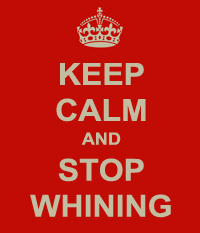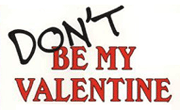 Ben Feiler’s lovely New York Times piece (“The Stories That Bind Us”, 3.15.2013) is adapted from his recently published book, “The Secrets of Happy Families: How to Improve Your Morning, Rethink Family Dinner, Fight Smart, Go Out and Play, and Much More.”
Ben Feiler’s lovely New York Times piece (“The Stories That Bind Us”, 3.15.2013) is adapted from his recently published book, “The Secrets of Happy Families: How to Improve Your Morning, Rethink Family Dinner, Fight Smart, Go Out and Play, and Much More.”
The Pathologization of Human Emotion (T. Gup)
 In a response to the recent discussion in the New York Times about the growing numbers of children and teens being diagnosed with Attention Deficit & Hyperactivity Disorder, Ted Gup (author and fellow of the Edmond J. Safra Center for Ethics at Harvard University) writes poignantly about a system “that devalues talking therapy and rushes to medicate, inadvertently sending a message that self-medication, too, is perfectly acceptable.”
In a response to the recent discussion in the New York Times about the growing numbers of children and teens being diagnosed with Attention Deficit & Hyperactivity Disorder, Ted Gup (author and fellow of the Edmond J. Safra Center for Ethics at Harvard University) writes poignantly about a system “that devalues talking therapy and rushes to medicate, inadvertently sending a message that self-medication, too, is perfectly acceptable.”
11% of American Children Struggle with ADHD…. Really?? (Schwarz & Cohen)

According to the findings of a 2011-2012 CDC (Center for Disease Control) study of some 76,000 families, one in five high-school age boys in the United States and 11 percent of school-age children have received a medical diagnosis of Attention Deficit Hyperactivity Disorder (ADHD). ADHD is described by most experts as resulting from abnormal chemical levels in the brain that impair a person’s impulse control and attention skills.
Learning to “Un-Whine” (V. Diller)
 While complaining may provide us an opportunity to “unload,” and even help us feel connected to one another as we share our grievances, excessive complaining can create an internal cycle of negativity and become a heavy burden to those close to us. By challenging thoughts and feelings that are attached to maladaptive behaviors, we work to transform these habits (such as excessive complaining) into positive actions that serve us better in the long run.
While complaining may provide us an opportunity to “unload,” and even help us feel connected to one another as we share our grievances, excessive complaining can create an internal cycle of negativity and become a heavy burden to those close to us. By challenging thoughts and feelings that are attached to maladaptive behaviors, we work to transform these habits (such as excessive complaining) into positive actions that serve us better in the long run.
Why Couplehood is So Difficult (Eva Illouz)
 With contemporary culture’s focus on individual satisfaction, the traditional couple relationship is much more difficult to achieve. With more and people opting to live on their own, is the very idea of couplehood passé?
With contemporary culture’s focus on individual satisfaction, the traditional couple relationship is much more difficult to achieve. With more and people opting to live on their own, is the very idea of couplehood passé?
Definition of Love (Dr. Seuss)

So maybe it’s all about acceptance. If we understand our partner’s particular brand of “weirdness,” it is easier to be accepting. In a reframing of the author/illustrator’s use of the term “weirdness,” we are speaking about the way each of us is socialized, wounded or made vulnerable, causing us to behave, react and interact the way we do.
Modern Mating — It Ain’t So Bad (F. Bruni)
 A recent NYTimes article by Alex Williams (1.11.2013) lamenting the end of courtship in this new internet culture has triggered a huge amount of media attention and reaction. In today’s paper, columnist Frank Bruni urges us not to panic — but rather to pause a moment and “return to a halcyon world of agrarian ways and contemplate the unflustered situation of a fertile lass on the cusp of womanhood centuries ago.”
A recent NYTimes article by Alex Williams (1.11.2013) lamenting the end of courtship in this new internet culture has triggered a huge amount of media attention and reaction. In today’s paper, columnist Frank Bruni urges us not to panic — but rather to pause a moment and “return to a halcyon world of agrarian ways and contemplate the unflustered situation of a fertile lass on the cusp of womanhood centuries ago.”
The Mathematics of Love (J. Brody)
 Health writer Jane Brody reminds us in a recent posting (That Loving Feelings Takes a Lot of Work, 1.14.2013) to her NYTimes Personal Health blog of the power of positive comments and gestures. Although negative comments clearly serve us well in keeping us out of danger and correcting undesirable actions, balancing them with the right amount of positive comments can keep a relationship flourishing. The following is a selection from her longer piece… a nice reminder!
Health writer Jane Brody reminds us in a recent posting (That Loving Feelings Takes a Lot of Work, 1.14.2013) to her NYTimes Personal Health blog of the power of positive comments and gestures. Although negative comments clearly serve us well in keeping us out of danger and correcting undesirable actions, balancing them with the right amount of positive comments can keep a relationship flourishing. The following is a selection from her longer piece… a nice reminder!